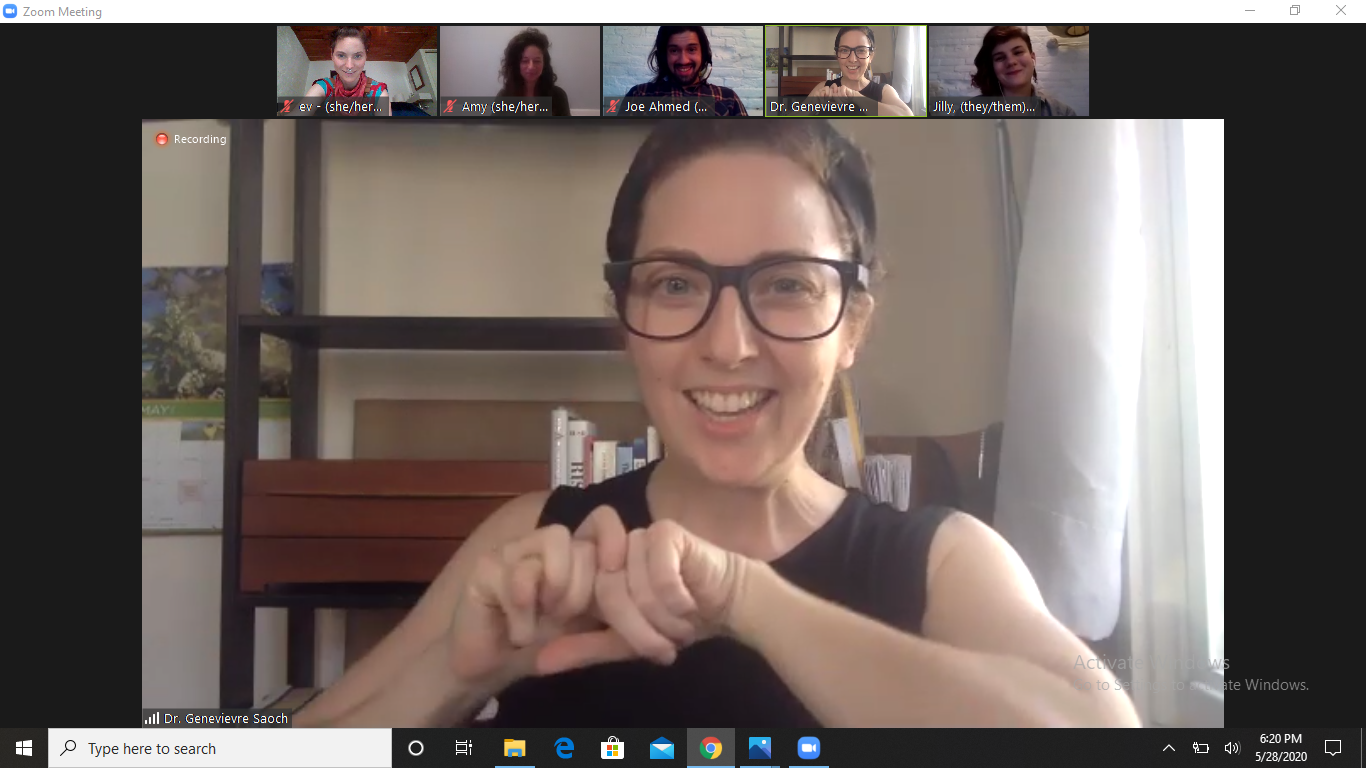
TED Talks are a cultural bento box: structurally organized, perfectly proportioned, intellectually nutritious, and imaginatively delicious. To date, there are more than 3,400 TED Talks published on the TED website, with more than one billion total views. Covering a vast array of topics under the banner of technology, entertainment, and design, TED Talks are for “ideas worth spreading.”
Leveraging that approach, Chaos Theory is billed as “an off-the-rails TED Talk on the underlying chaos of our lives. A comedic, immersive lecture about chaos theory devolves into a series of interactive games inspired by the science of chaos theory, Jurassic Park, middle school crushes, and abstract math seminars.” Created pre-pandemic and previously produced as an in-person event, Chaos Theory recently migrated to everyone’s favorite online platform to hate: Zoom. When this “COVID-ifcation edition” succeeds, the show subverts stale tropes of the lecture format, transforming them into universal truths and humorous character reveals; when it doesn’t, the show is, well, simply off the rails.
As Dr. Genevieve Saoch (a cheeky anagram of “chaos”), Jessica Creane is an enchanting host, reflecting back our shared video conferencing woes: technical hiccups, background disarray, and a pants-less exposé. Anchoring the show with TED-esque allocution, Creane also toggles between wider group activity and facilitating smaller breakout exercises between attendees.
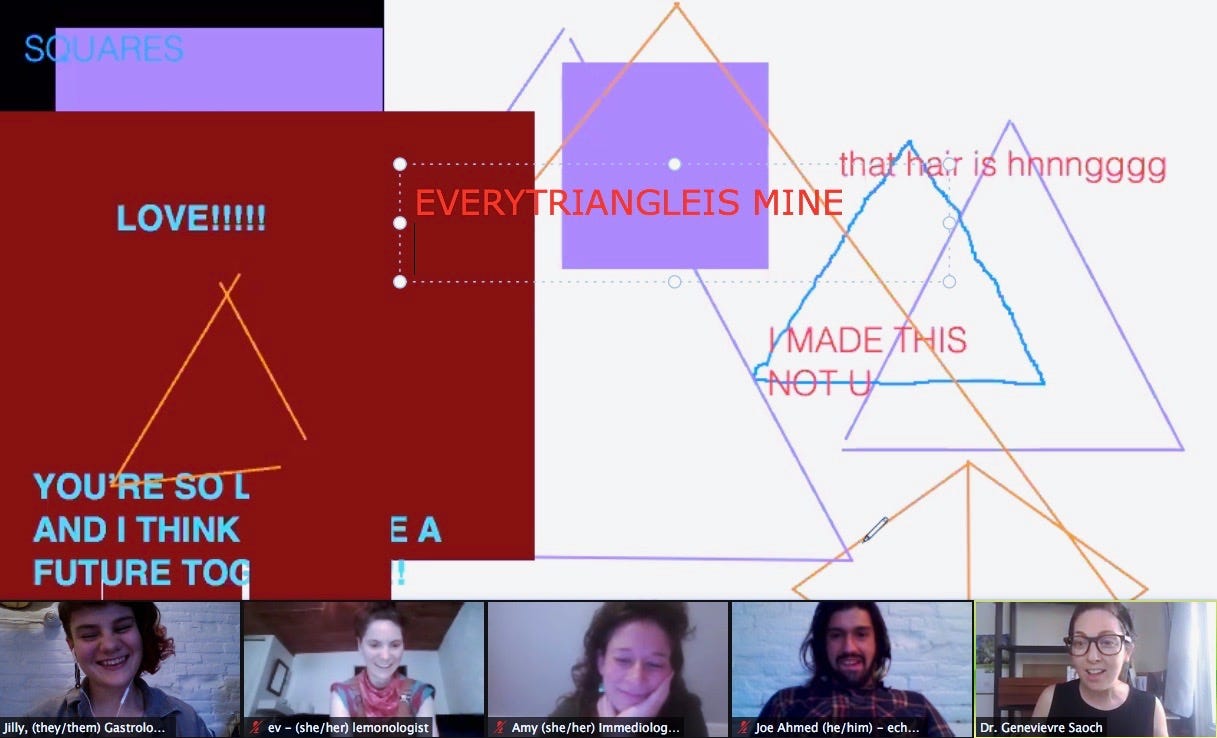
What the show gets right is spoofing the lecture format: a introductory bio which includes a personal hobby involving flavored, lubricated, “balloon” arts; a transition to PowerPoint slides that accidentally reveals an open browser tab with an in-process application for The Bachelor; and the definition of chaos theory illustrated by a hilarious rebus-style progression of rudimentary drawings. There’s also a (loosely relevant) deep dive into the complicated, dramatic romance between various anthropomorphized canned goods and the Fabio-equivalent of sourdough starters (named after mathematician Edward Lorenz, who discovered the butterfly effect and the foundation of chaos theory).
Fully committed to the character of Dr. Saoch, Creane delivers her presentation with pure conviction. Her eccentricities create a layered performance; her vulnerabilities feed the comedic relief, which drives the underlying universality of the character: we are all chasing validation and acceptance, yearning to be in control as the engineers of our lives, and forging powerful bonds — whether with fellow humans or swoon-worthy inanimate objects.
Robin Williams reportedly said, “Comedy is acting out optimism.” And where Chaos Theory lifts us up is in its comedy, both separate from and directly related to our current, locked-in state. We need Creane to act out the optimism we seek. And this is where COVID-ification comes into play. People are exhausted by ongoing stress of the pandemic and the ways it presents in our lives. Although we are foraging for connection, there is an underlying fatigue; pre-pandemic we had greater reserves to draw on, to contribute more energetically. But now, we are desperate for leadership, especially since our country is absent any.
Get Laura Hess’s stories in your inbox
Join Medium for free to get updates from this writer.
SubscribeSubscribe
And so, the show loses focus through some of its interactive elements. It’s in those moments that Creane downshifts from captain to a more equitable level alongside participants. Distance created by computer screens and a lack of shared environment morph the audience into a fleet of ships, rather than a single vessel steered by Creane; this makes her job guiding us, her weary crew, that much harder.
During a call-and-response group exercise, Creane presented a range of situations, with many scaling towards the nonsensical, and the audience categorized each situation as “order” or “chaos.” As the exercise went on, enthusiasm was muted. On occasion, someone would diverge from the instructions by making a different declaration altogether, one that reflected the absurdity of our new normal and brought us back in alignment with the comedy of our turbulent lives. I wanted Creane to acknowledge these witty surprises and mirror our shared laughter rather than skipping past it. Those moments were true, off-script opportunities embodying the show’s theme and goals. Creane, who skillfully improvised at other points, missed that mark.
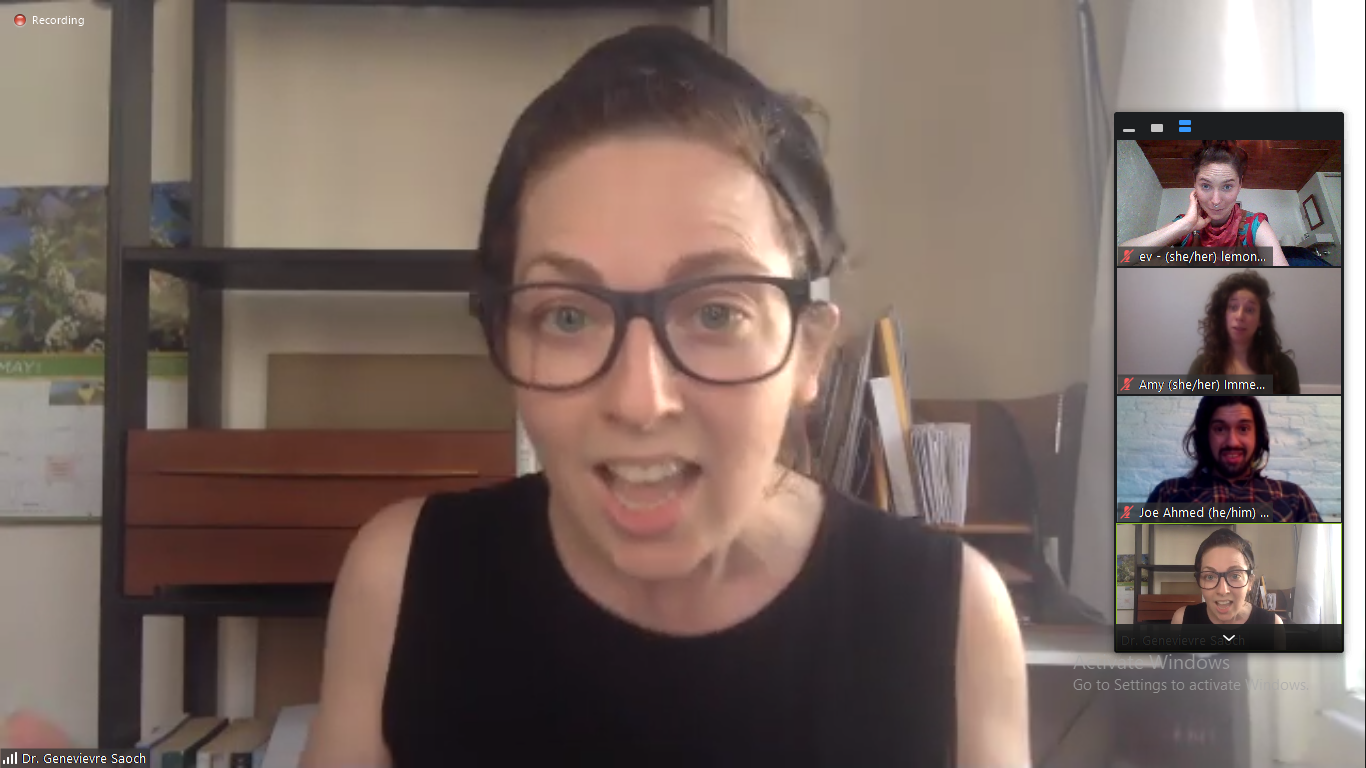
The core problem — and the divine potential — with interactivity is in its unpredictability. Energy is contagious and when there are more than 35 participants, each wedged into their miniature gallery-view Zoom boxes, managing that energy becomes a massive challenge. This has been a common problem for many remote experiences, especially for those originally designed as an in-person event. In a venue, the power of that communal energy can still be unwieldy, but there are clearer parameters and reduced variables.
With video conferencing, audiences may be buttressing, successfully or unsuccessfully, against a whole host of interferences. Control over environment is lost and energy contagion can be just as spotty and unreliable as Internet access. How do we read people when we see so little of them, which is further compounded when their screen freezes or their mic cuts out? How do we feel someone when they’ve been reduced in size to a frame of film? Once the energy of Chaos Theory drops off, Creane has the Sisyphean task of rallying up the audience again. She clearly possesses the talent to do so, but the show’s structure works against her in these moments.
The most engaging TED Talks open a portal through which you step outside of yourself. That sensation of being transported is the core goal of any entertainment. Free of individual limitations and external forces, we lose the pressurized thoughts of finances, obligations, and responsibilities. Anxiety subsides and the present includes that simultaneous release along with a keener understanding of the world around us. We lose shackles of the self and gain a unified, kinetic sense of wonder.
Collectively, we’ve been experiencing a profound disconnect: our own break from reality as we knew it. Our interconnectivity, our understanding of separateness, our environmental relationships, and our processing abilities — these have capsized. Chaos Theory wades into that churning sea, casting out comedic life preservers; not all reach us, but we cling to those that do.
Chaos Theory continues on select dates through 2020. Tickets are $12–25.
NoPro is a labor of love made possible by our generous Patreon backers. Join them today!
In addition to the No Proscenium web site, our podcast, and our newsletters, you can find NoPro on Twitter, Facebook, YouTube, Instagram, in the Facebook community Everything Immersive, and on our Slack forum.
Office facilities provided by Thymele Arts, in Los Angeles, CA.



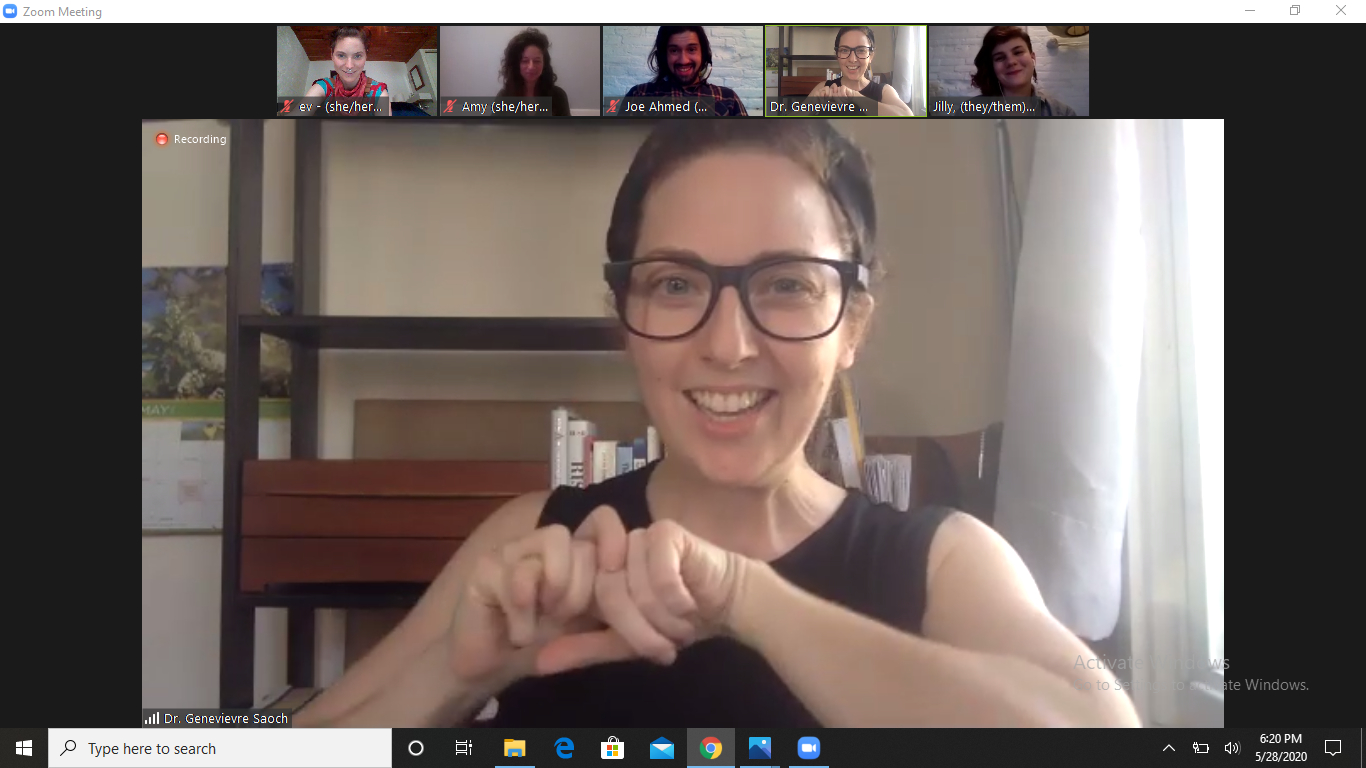
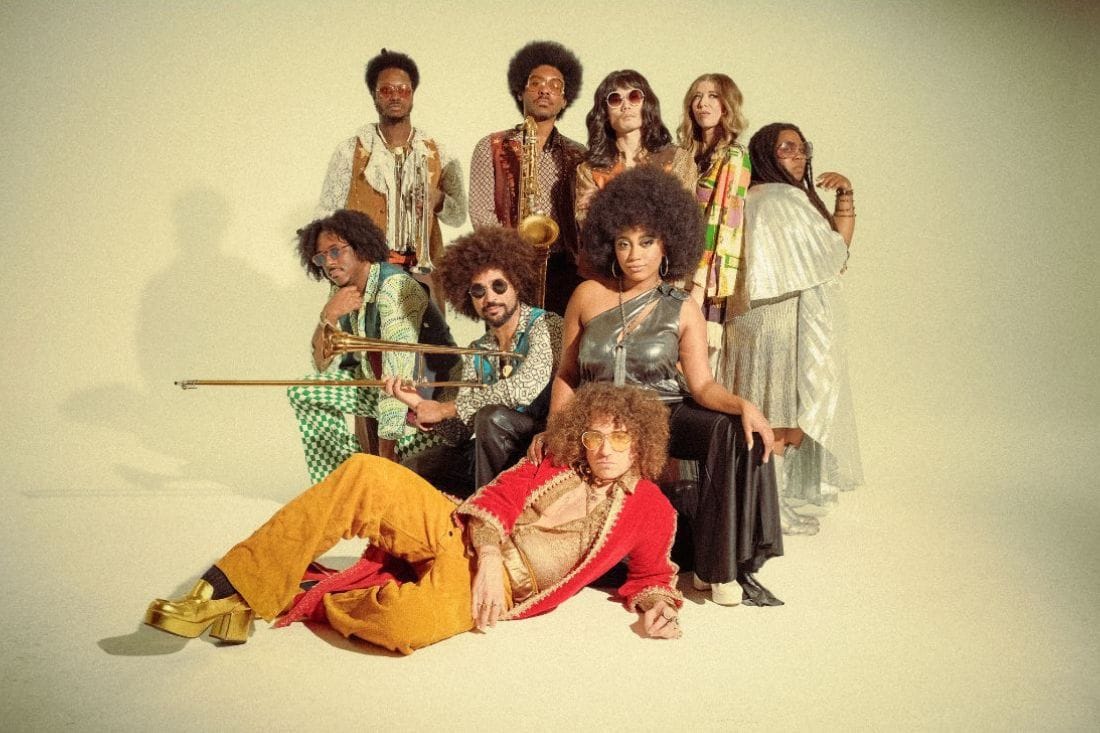

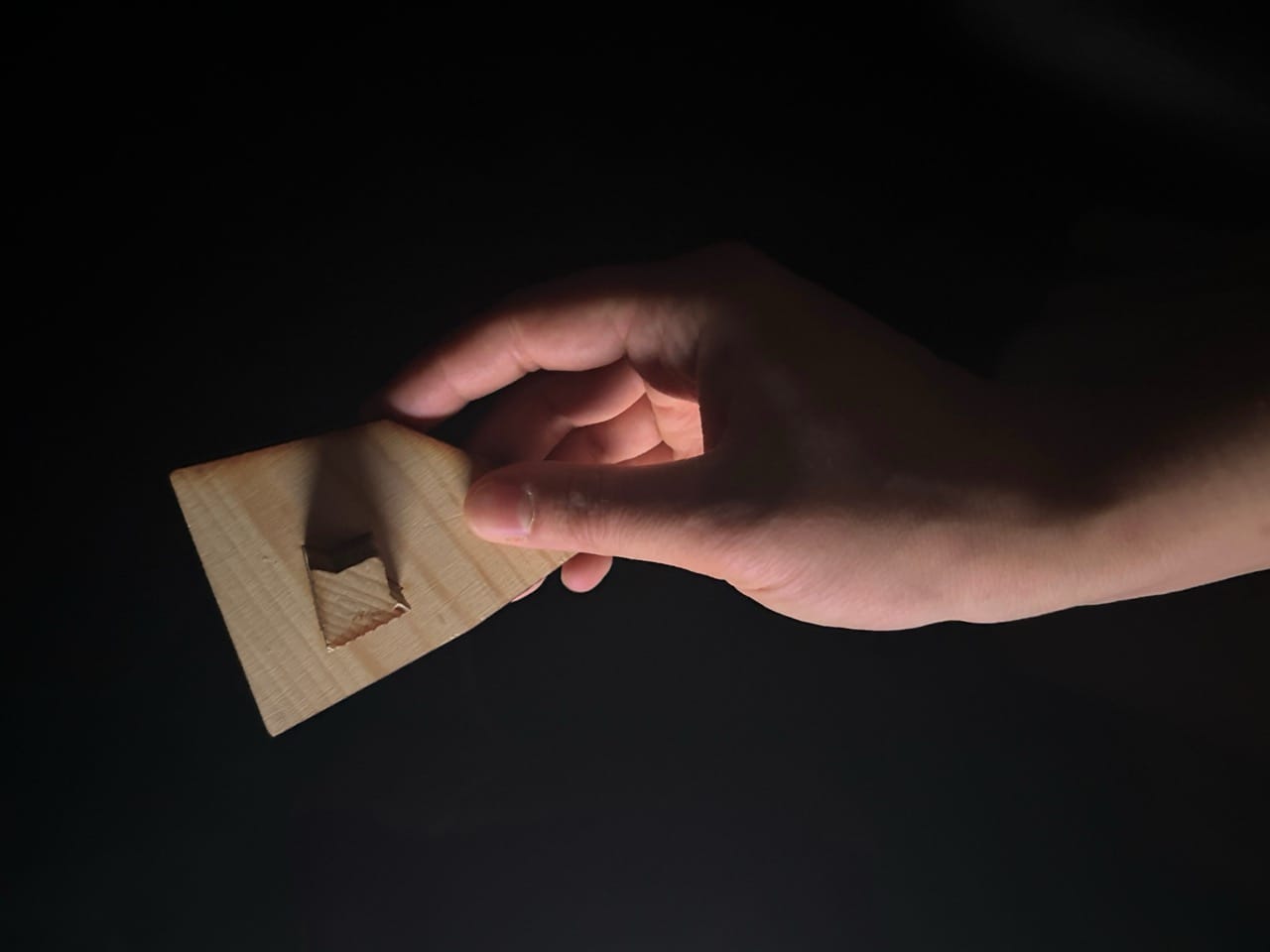

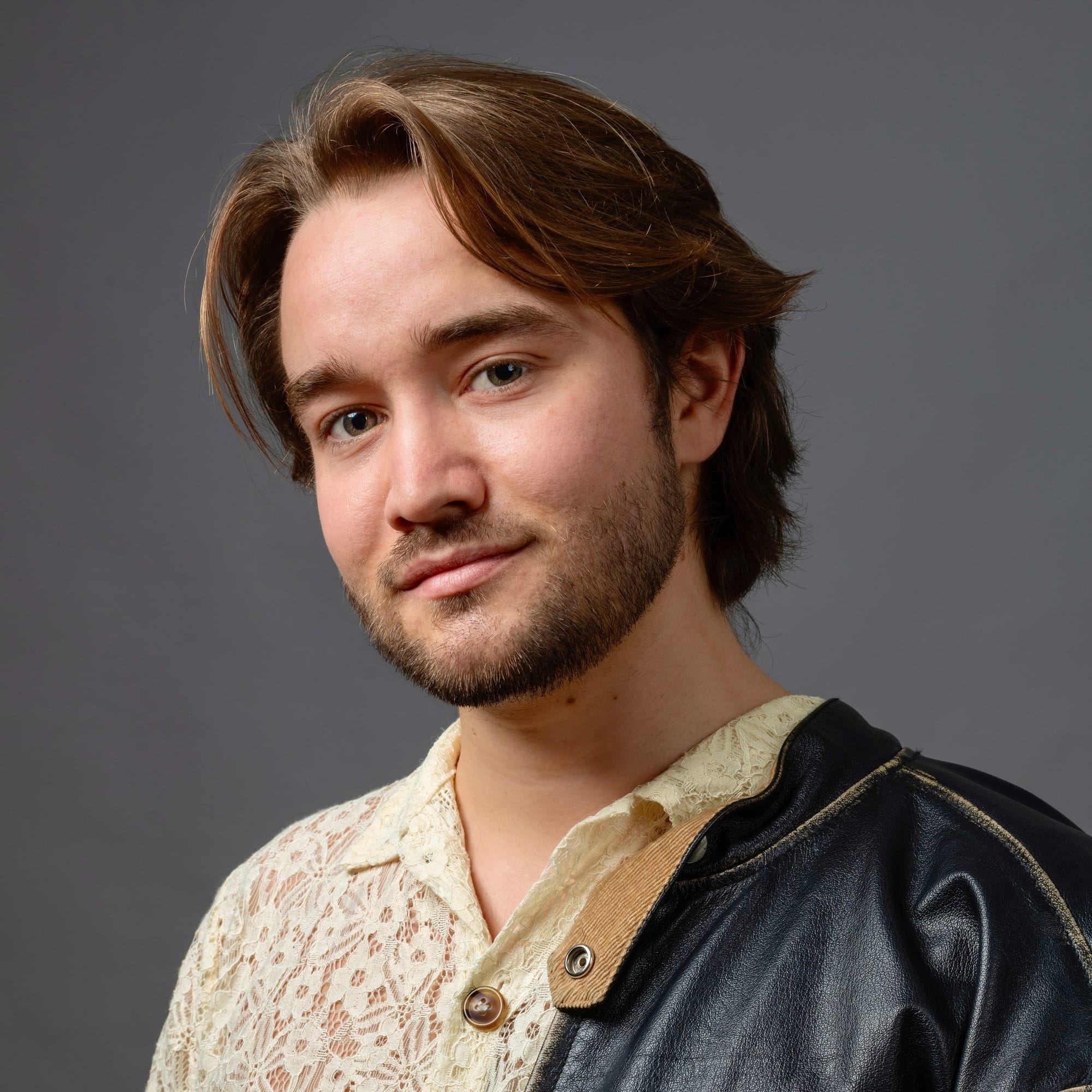




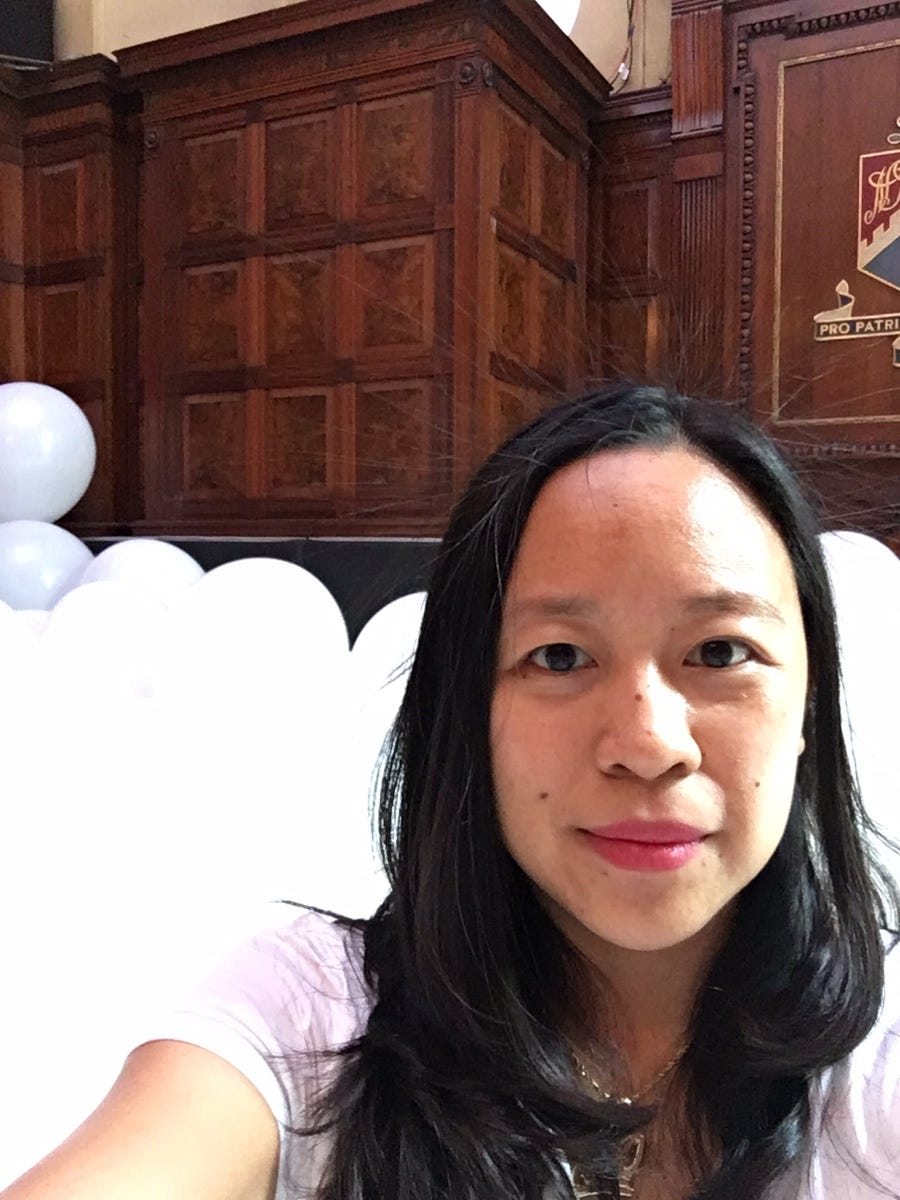
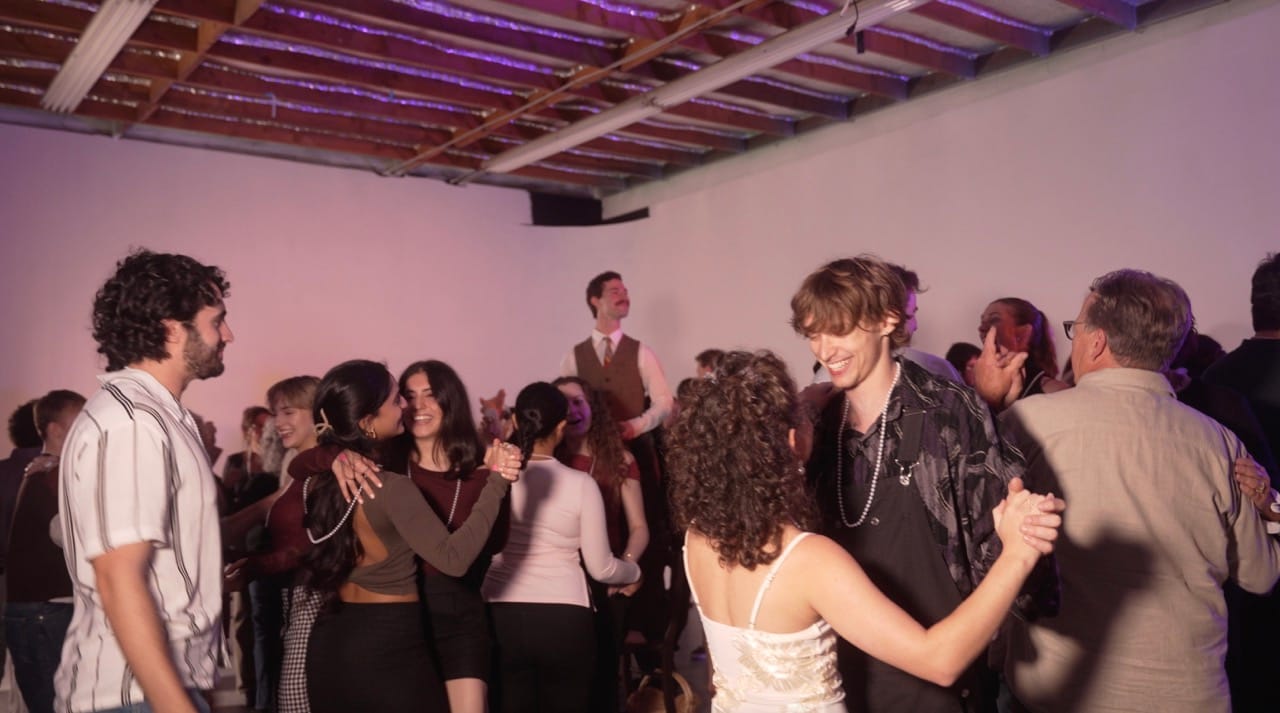
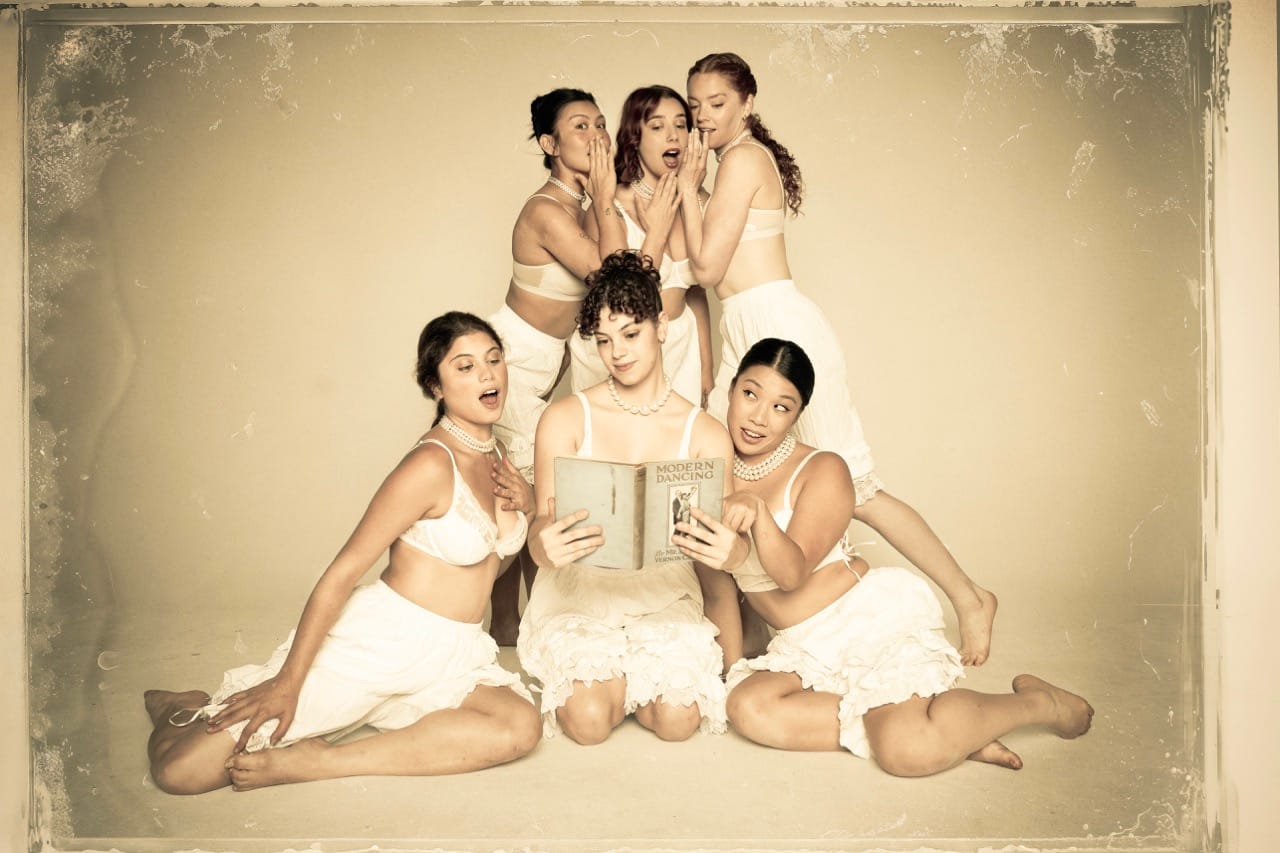
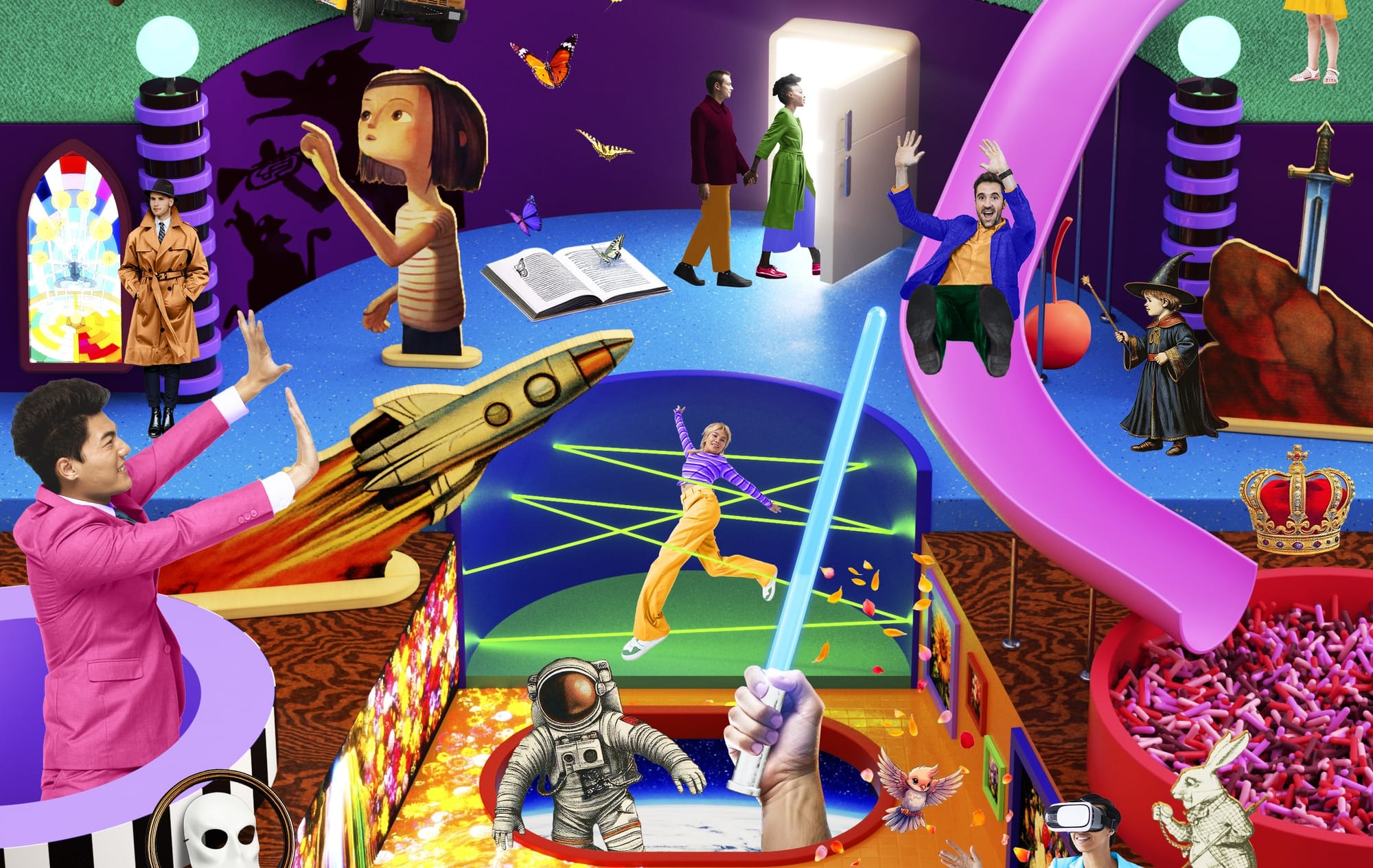
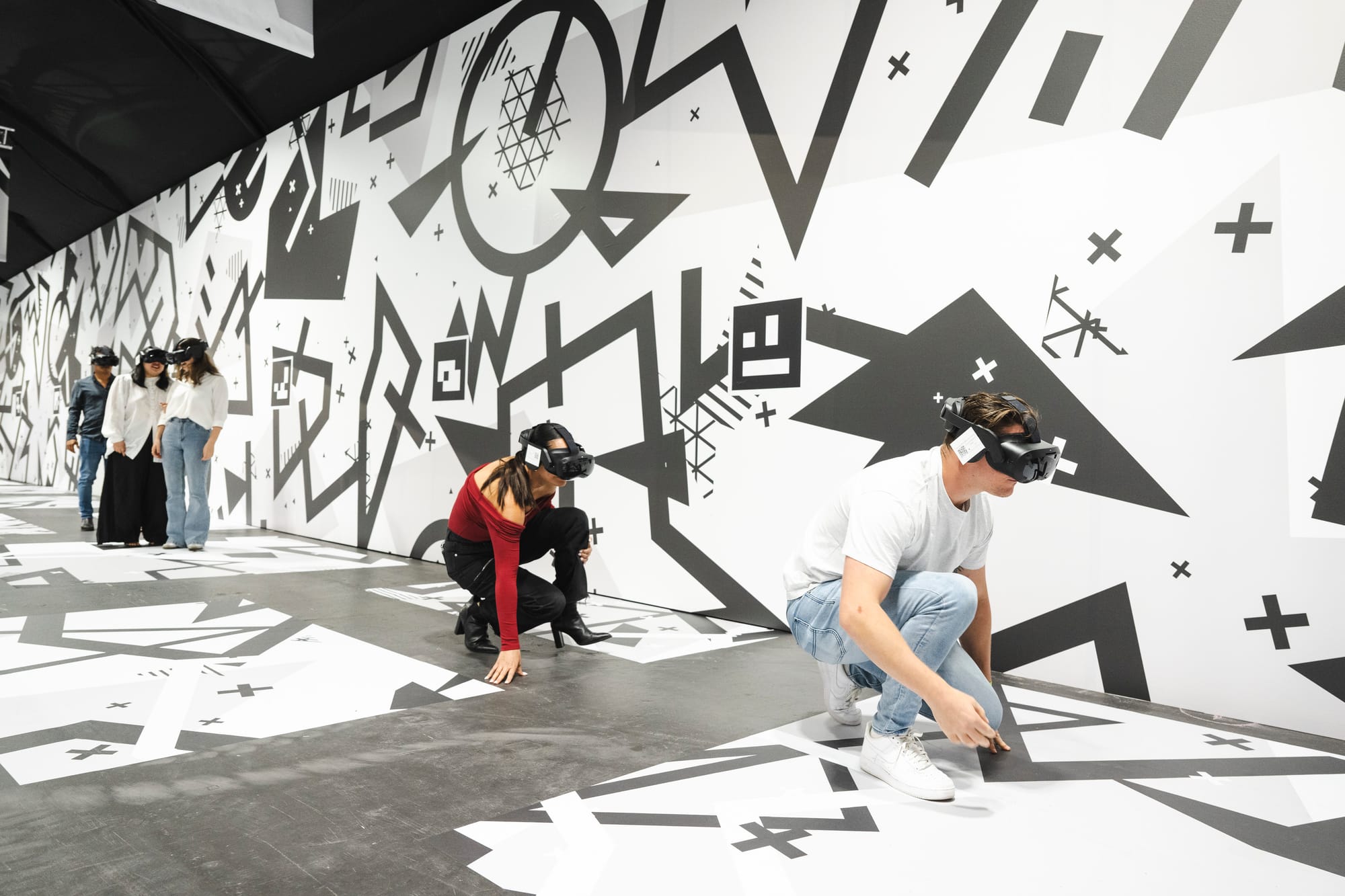


Discussion